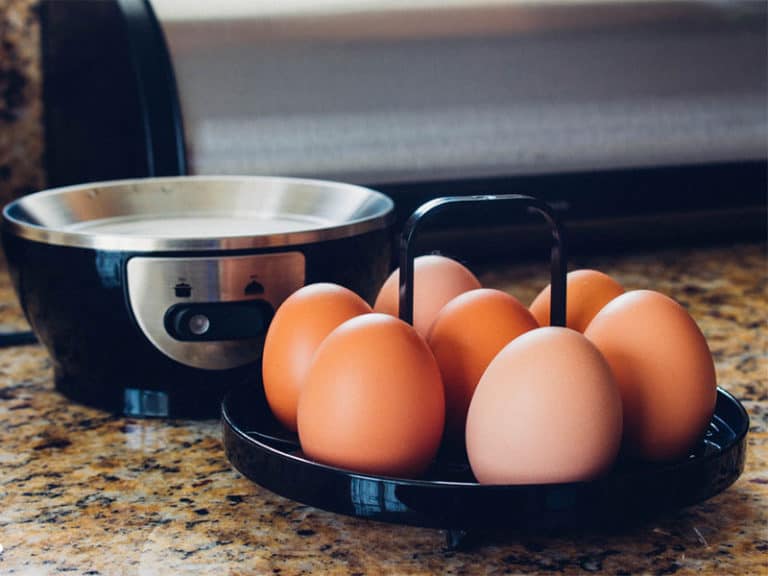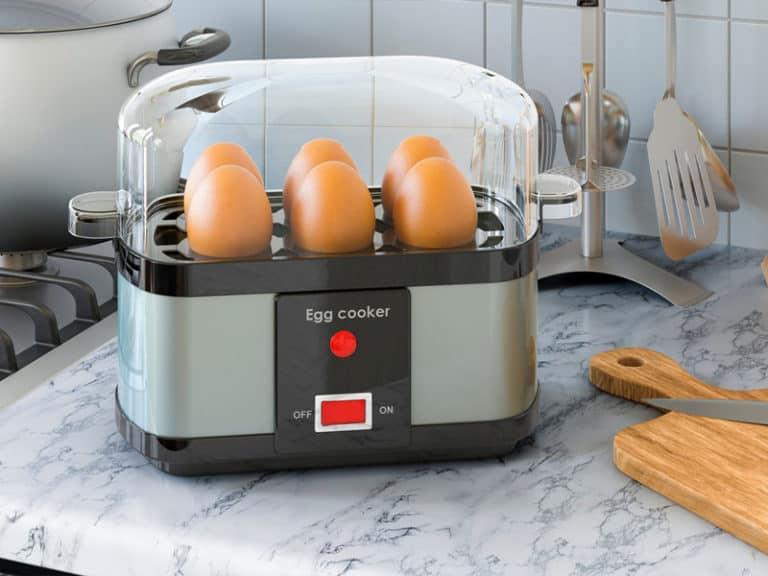An egg is a nourishing and popular kind of food; however, in consuming it there are concerns about eggs left out overnight. Are there any changes in the nutrition elements of eggs, and is it still safe for people to eat eggs that are left out overnight?
If you want to understand this issue, reading this article will help you find the answer.
This post also gives you an understanding of how to properly store eggs. Knowing this, you will be able to make full use of eggs, which includes making delicious dishes without losing any nutritional value of this kind of food. With hesitation, let’s go.

Are Left Eggs Out Overnight Safe To Eat?
It is common that you take the eggs out of the fridge to make dishes and sometimes you forget to put them back in the fridge, leaving them out for several hours.
You are aware of whether the eggs are still safe for you to eat because you think that there may be changes in the eggs’ quality if you leave them out for too long.
The answer to your concern is provided below.
With both raw and boiled eggs, if they are already put in the fridge, they should not be taken out for more than 2 hours.
If the time exceeds 2 hours, the egg quality will be decreased and even become bad for your health when you eat them.
This is because when the eggs have been stored at a cool temperature in the fridge, taking them out means that you are changing the temperature of their storing environment.
Sending the eggs from a cool place to another place with a higher temperature can cause harmful bacteria to grow and multiply. Therefore, at this point, they are no longer nutritious and healthy for you to consume.
However, in some conditions, the eggs that are left out for several hours can still be safe for you to eat. Specifically, it is when you leave the eggs in a place where the temperature is stable. For example, in your kitchen, the temperature usually does not fluctuate very much.

In the cases when you leave the eggs in the kitchen for many hours, what you need to notice and remember to do is to wash your hands when making dishes with eggs and cook them carefully. These are to prevent harmful bacteria from growing in the eggs.
Left Eggs In The Car Overnight
A small notice for you is that you should not use eggs if you have left them in the car for hours, or overnight.
It is because the temperature in your car fluctuates significantly all day and all night regarding the temperature from outside. Therefore, the eggs’ quality will not be ensured due to dramatic changes in the temperature.
Now that you know, eggs should not be left out for more than 2 hours. By reading the next part of this article, you will also get to know what happens to eggs if they are left out overnight.
What Happens To Left Eggs Out Overnight?
To understand why you should not leave eggs out overnight, you can get to know what happens to them during that period.
Once eggs have been stored in the fridge, taking them out means the temperature for storing them is increasing. In these cases, the temperature rise can facilitate favorable conditions for harmful bacteria to grow.
Salmonella is a harmful bacteria that grows and multiplies in the eggs when they are left out for several hours. This kind of bacteria causes illnesses in the human digestive system. (1)

People who get sick from contaminated eggs with salmonella usually have symptoms of diarrhea, stomach cramps, and fever. People may develop these symptoms between 6 hours and 6 days after eating salmonella-contaminated eggs.
The sicknesses caused by salmonella usually last between 4 and 7 days. Healthy people can recover from these illnesses in a short time within a week.
In some cases, the symptoms of diarrhea can become serious and need medical treatment to help people recover from this illness.
Specific groups of people may have to suffer from high risks of health, even if the infection is life-threatening to them if they consume salmonella-contaminated eggs. They are adults over 65 years old, children under 5 years old, and people with special health problems. (2)
Therefore, in storing and consuming eggs, you have to be very careful and notice every crucial point regarding keeping them clean and safe to eat, in order to avoid health-related negative impacts on you and your family members.
To make it, you should be sure of the eggs’ quality, to enjoy delicious, safe, and nutritious dishes made from eggs. The section below is a guide for you.
What you need to know about eggs and salmonella.
How To Tell If Eggs Have Gone Bad
After several hours or one night leaving eggs outside the fridge, you worry about the egg safety but still do not want to discard them. If you are in this situation, you can try the following ways to check if the eggs are still good for use.
Expiration Date
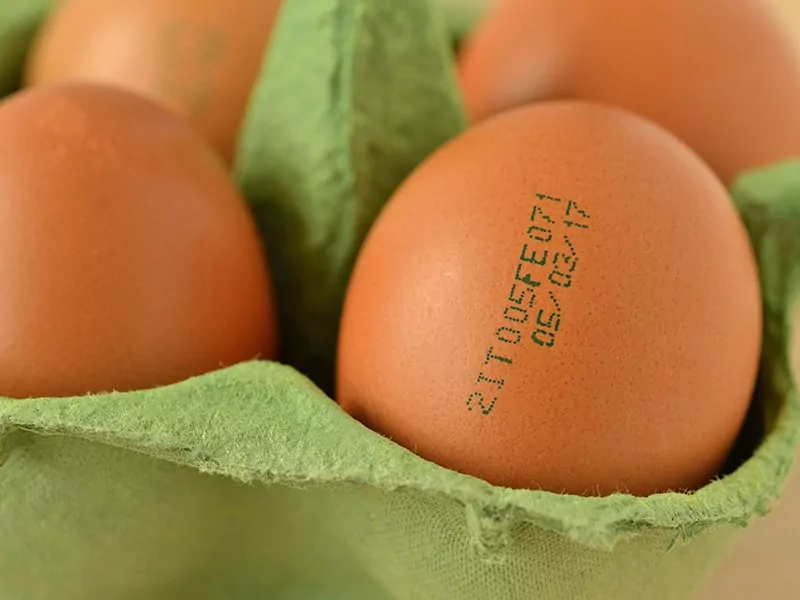
One of the simplest and fastest ways to check if the eggs are still good for use is to check the expiration date on the carton.
The expiration date on the label of the eggs indicates the day that they are no longer best for use. Although it does not necessarily mean that the eggs have gone bad, it shows that they are less than fresh.
If the eggs have passed their expiration date, you need to check the eggs’ quality by other methods.
Smelling Test
You can also check whether the eggs have gone bad by smelling them.
When eggs go bad, they give out a distinguished smell, a smell like sulfur. Fresh eggs do not have any special smells, so a good way to check the eggs’ freshness is to smell them, whether they release strange smells will help you know if they are still good for you or not.
If you crack an egg and smell a pungent smell right after that, you should discard it right away.
Visual Test
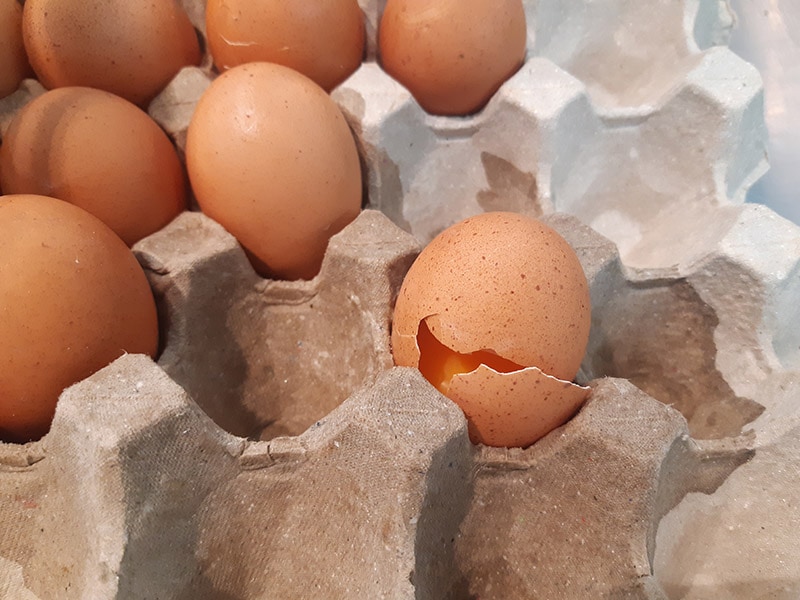
Another simple way to test eggs is to have a careful look at their appearance. It is easy to detect the eggs that have gone bad by recognizing the unusual details on the shell or inside the eggs.
After leaving the eggs for many hours, you should look at them very carefully to check if they are cracked, or if there are strange dots on the eggshells. The strange characteristics of the eggshell indicate the contamination of harmful bacteria in the eggs.
If the shell is fine with no strange dots or cracks, you should take another step to check the eggs. That is to crack the eggs into a bowl to see if there is any discoloration in the yolk and whites of the eggs.
Any discoloration of the yolk and whites that you see means that the eggs are no longer good for use.
Float Test

A float test is an interesting and widely-used way to test eggs’ quality. By checking how the eggs settle in the water, you can know how fresh they are.
To do this test, you need to have a bowl, a glass or a bucket of water, then put the eggs in it and look at how the egg stays in the water.
If the egg sinks and lies horizontally, it means that they are fresh and best for use.
If the egg lies upright at the bottom of the water, it means that they are still usable, but not very fresh.
If the egg floats, it indicates that the egg is not good and this time you should discard it.
This float test is used for checking whether the eggs are fresh or old. It cannot tell whether the eggs have gone bad or not.
An interesting explanation for the float test.
Candling

Candling is a way that you can use to check eggs’ freshness. It is a little bit more complicated than the approaches above.
To do this test at home, you need to take the egg to a dark room. You can use a candle, a small flashlight, or a reading light to test the eggs’ freshness.
Firstly, you keep the light up to the big end of the egg. Then you tilt it and turn it quickly from left to right. At this step, you can see the contents of the egg.
The next step is to check the air space inside the egg. If it is under ⅛ inch (3.175 mm), you can be sure that it is very fresh.
It is because gasses replace water lost in the eggs on aging, so the older the egg is, the bigger the air cell in the egg will be.
How Long Do Eggs Last?
There are different specific timeframes to store eggs in distinguished conditions.
To know exactly when will the eggs lose their freshness and quality in different conditions, you can have a look at this table:
A detailed guide on how long eggs can last.
How To Store Fresh Eggs?
The important information that you should remember is that fresh eggs can be stored at room temperature for less than 2 hours, in the fridge for up to 5 weeks, and they should not be kept frozen.
If you want to keep eggs frozen to store them longer, you must separate the white and the yolk. You can keep them frozen for 1 year.
In storing fresh eggs in the fridge, the recommended methods are below:
Keeping The Egg Carton
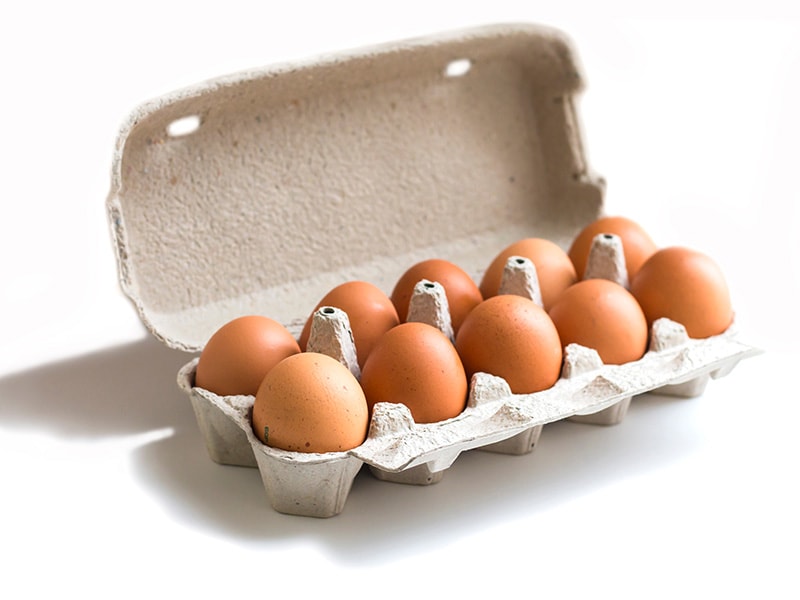
In putting eggs in the fridge, you should not remove the egg carton. Eggs should be stored in the carton for 2 main reasons.
Firstly, an egg carton is used to protect the eggs. It helps prevent the egg from breaking in the storing and transport process.
Secondly, egg cartons help prevent eggs from exposing other food odors and flavors. Therefore, this can ensure eggs’ freshness.
Laying Eggs In The Middle Shelf Of The Fridge
It is popular that you lay eggs on the door of your fridge for convenience in use. However, this is not the best way to store eggs in the fridge.
Because the fridge door is open multiple times per day, the temperature is not stable, and this is a poor condition for storing eggs.
On the middle shelf of the fridge, the temperature remains cool and consistent, which is the ideal environment to store and guarantee the egg quality as well as freshness. This is the very best way to keep eggs.
The timeframe that is suitable to store eggs in the fridge is from 3 to 5 weeks. Within this time, the eggs remain fresh and safe for you to consume.
The fridge door is not an ideal place to store eggs.
Do Not Reuse Egg Carton
Although using egg cartons is advised in keeping eggs, reusing them is not a good choice for you as it does not provide positive protection to the eggs any longer.
Because in storing and cooking eggs, you take them in and out of the fridge several times and also touch the carton several times. The carton may be contaminated in these times and if you reuse it, the new eggs may also get contaminated.
For the same reason, avoiding taking the eggshells back to the carton after use is also recommended.
How To Store Cooked Eggs
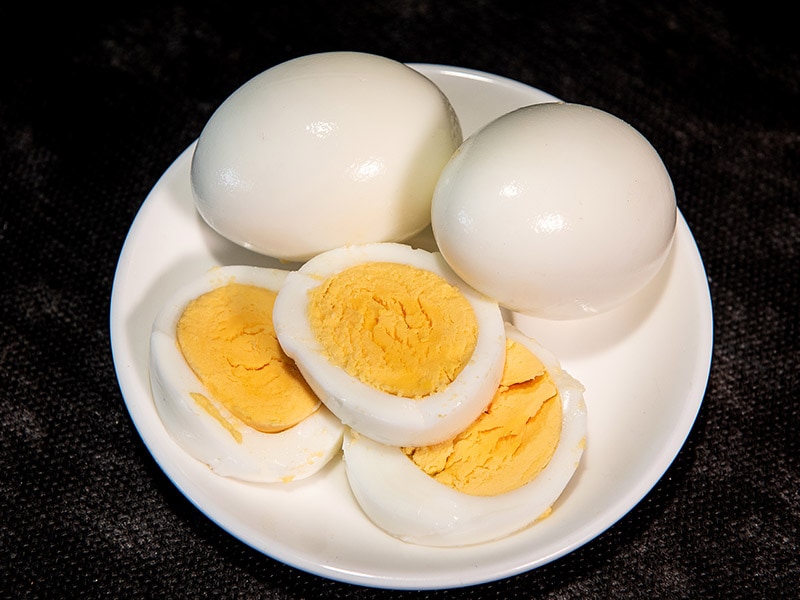
To protect eggs’ quality, following the right way to store eggs is important since different kinds of cooked eggs need different storing methods.
Once you have boiled eggs, it is necessary to store them in the fridge if they are not consumed in some hours.
The best way to keep the eggs in the fridge is to cover them with a container. This will help protect the eggs’ quality better.
If the eggs are already peeled, you should use a damp paper towel to cover their top and bottom before putting them in the freezer-safe container. This is to keep the moistness of the eggs.
Being careful in storing eggs is important but sometimes you may forget to keep the eggs in the fridge and leave them out for hours.
As mentioned in the first section of this article, eggs can be left out for no more than 2 hours, or they can be left out for several hours, even overnight provided that the outside temperature is consistent.
In these cases, there are still some points that you should remember when processing and cooking eggs.
Here are some notes for storing cooked eggs that you should not miss.
Things To Remember When Cooking Eggs Left Out For Hours
Even if, after your test, the eggs are fresh, you still have to pay great attention when you cook them. It is mainly to help prevent the eggs from being contaminated with salmonella to save the egg quality for your consumption.
To do so, you need to remember these points when cooking eggs.
Wash Your Hands Carefully
Washing your hands carefully is the very first step in handling eggs that you should take.
You do many things and your hands touch many different things in a day. That is the reason why you should wash your hands carefully before taking eggs, in order to ensure that your hands do not contain harmful bacteria that can grow in eggs.
Use Clean Utensils In Processing Eggs
Utensils are very important things to handle eggs and keeping them clean is necessary when you cook eggs.
Utensils are other things that expose directly to eggs, so to avoid contamination, you should use clean utensils. To make sure that the utensils are clean, you can wash and sanitize them with soapy and hot water. After washing, you should rinse the utensils with clear water.
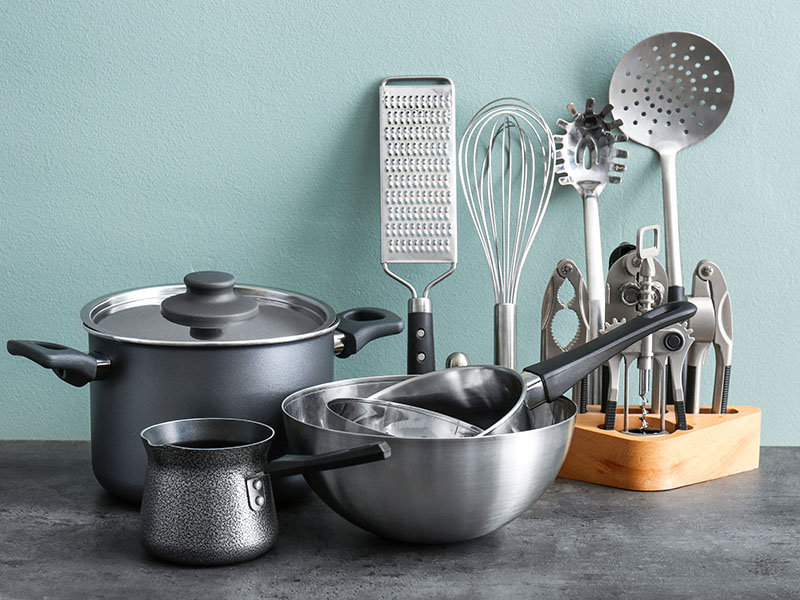
FAQs
Eggs and health is a widely concerned issue that many people pay attention to. After having learned about the general facts of left eggs out from above, you can have a look at these common questions to know more about it.
Left Eggs Out Overnight – Potential Risk For Your Health
Eggs should not be left out for more than 2 hours once they have been refrigerated. Longer time left outside and temperature fluctuation in the place of storage can result in the infection of salmonella bacteria.
In the condition that the room temperature has no fluctuation, eggs’ freshness can still be good for you to consume even if they are left outside for several hours or overnight.
However, in handling left eggs out for several hours, you need to check it carefully and pay great attention to the sanitary of your hands and utensils as well as the work surface, in order to guarantee safety when you consume these eggs.
Do you like this article? Let’s spread useful information about eggs left out overnight, their changes in the quality, and how to store as well as handle eggs in the best way for your beloved ones by sharing this post.
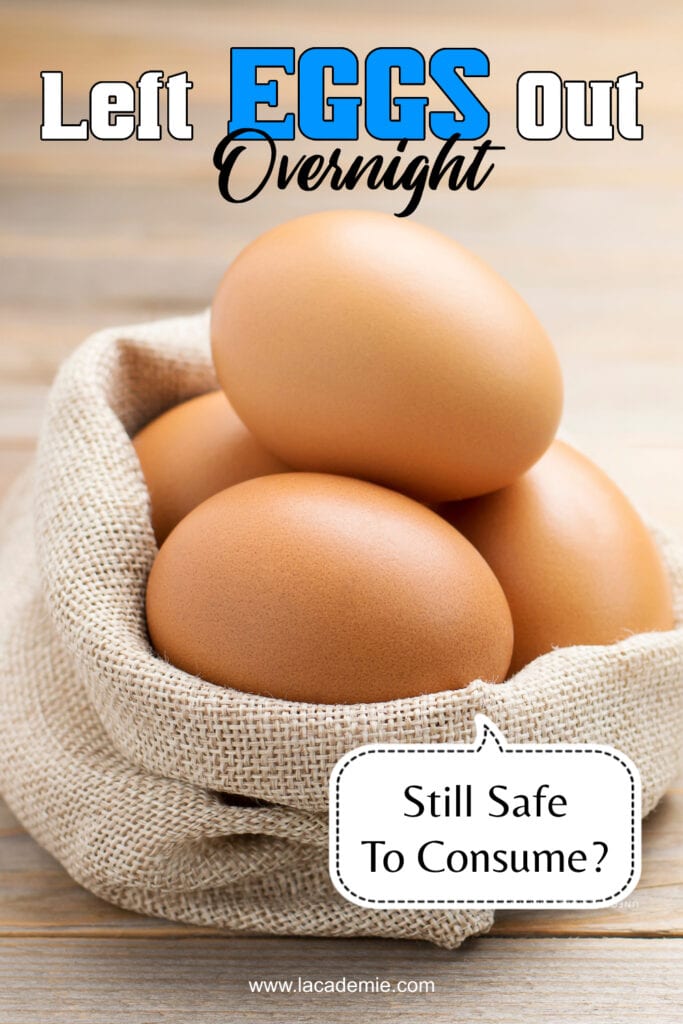
References
- 2022. cdc.gov. [online] Center for Disease Control and Prevention.
- 2022. cdc.gov. Center for Disease Control and Prevention.



